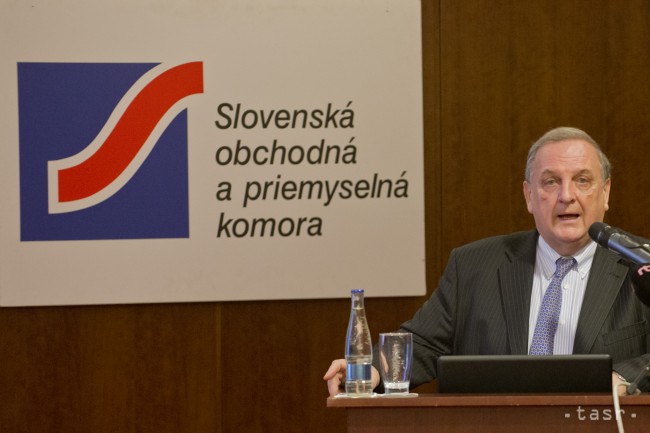Bratislava – Slovakia’s EU membership has brought many benefits to Slovak companies, such as access to the EU’s single market of now 27 countries, availability of EU funding sources, simplification of administration, and strengthening of competitiveness. On the other hand, it has also brought challenges such as increased competition, pressure to equalize wages, and loss of control over certain markets. This was stated on Monday at a press conference of the Slovak Chamber of Commerce and Industry (SOPK) by its chairman Peter Mihók, evaluating 20 years of Slovakia’s EU membership, informed TASR.
The success of membership, according to him, depends on perspective and sector. “For many companies, membership was clearly beneficial, while others faced the challenge of adaptation, but in any case, opportunities and markets opened up, bringing the business environment closer to global markets, ensuring possibilities for expansion and the acceptance of capital, labor, and often know-how, which are crucial in the business of every sector,” he explained.
“In my opinion, if we were not members of the EU today, we would be weakened and exposed to risks that would keep the economy’s potential at the level of the late 1990s. The milestone of entry is so important for a nation and economy of our size that I would compare it to the distant past and the recognition of the Slovak Republic as an independent sovereign state – we created our place on the political-economic map of the world, and we are still leveraging it today,” he emphasized.
He pointed out that the business environment in Slovakia has undergone remarkable transformation over the past two decades, catalyzed by key factors. EU entry marked a breakthrough, bringing market liberalization, simplification of business processes, and intensification of competition. According to him, these steps contributed to the facilitation of the establishment and operation of firms in Slovakia, which the younger generation also used for the development of their entrepreneurial activities.
At the same time, according to Mihók, the way of communication with customers and suppliers has transformed due to digitalization. Slovak companies were given the opportunity to connect to the global market, but it also brought challenges in the form of escalating competition from foreign companies.
Successfully overcoming these challenges required companies to master international trade skills and adapt flexibly to diverse cultural environments. Adaptation to new conditions required companies to undergo complex processes.
“Key steps included the introduction and adherence to EU standards, implementation of changes in internal company processes and systems, investments in modern technologies, employee education, acquisition of licenses and permits, and building contacts with partners abroad,” added the SOPK chairman. (June 24)
“The milestone of entry is so important for a nation and economy of our size that I would compare it to the distant past and the recognition of the Slovak Republic as an independent sovereign state – we created our place on the political-economic map of the world, and we are still leveraging it today.” Peter Mihók
 go to the original language article
go to the original language article
